The seminar "RCEP: New Future of Asia’s Economy" was held in Bangkok, Thailand
As a free trade area covering the largest population and having the greatest development potential in the world, the Regional Comprehensive Economic Partnership (RCEP) is firmly committed to open, inclusive and development-oriented multilateralism. Since the official entry into force of the RCEP, dividends have begun to be released. The integration effect of regional industrial and supply chains and the economic growth effect have begun to appear. A new situation of regional cooperation that shares opportunities and promotes common development has initially taken shape. At present, major changes unseen in a century in the world are accelerating. Promoting the process of Asian economic integration is facing severe challenges. Under this background, how to further deepen the economic links between Asian economies, promote regional trade and investment growth by fully releasing the dividends of the RCEP, thereby injecting important impetus into strengthening the resilience of Asian industrial and supply chains and promoting inclusive and sustainable economic growth in Asia has become an important issue that needs in-depth discussion.
The seminar "RCEP: New Future of Asia’s Economy", co-hosted by the Boao Forum for Asia (BFA) and the China Institute for Reform and Development (CIRD), and co-organized by the Hainan Institute for Free Trade Port Studies (HIFTPS), was held in Bangkok, Thailand on August 27th, 2024. This seminar invited former political leaders in the RCEP region, members of the RCEP Think Tank Network, experts and scholars, enterprise representatives, etc., to focus on the theme of RCEP and conduct discussions. More than 40 representatives from think tanks in China, Malaysia, Laos, Indonesia, the Philippines, Thailand, as well as media outlets such as the People's Daily Asia Pacific Center Branch, Xinhua News Agency Bangkok Branch, China Daily Thailand Branch, and China News Service attended the meeting.
H.E. Zhang Jun, Secretary General of the Boao Forum for Asia, pointed out in his opening speech that RCEP is an important institutional arrangement for Asia-Pacific regional integration, which is in line with the common interests of Asian countries. At present, there is still much work to be done to further promote the implementation of the RCEP: it is necessary to create a favorable policy environment for the operation of the RCEP; it is necessary to provide a supportive base, strengthen connectivity, and ensure the stable and smooth flow of supply chains and industrial chains; it is necessary to implement the institutionalization of the RCEP; it is necessary to promote the RCEP to move towards a higher-level free trade agreement.
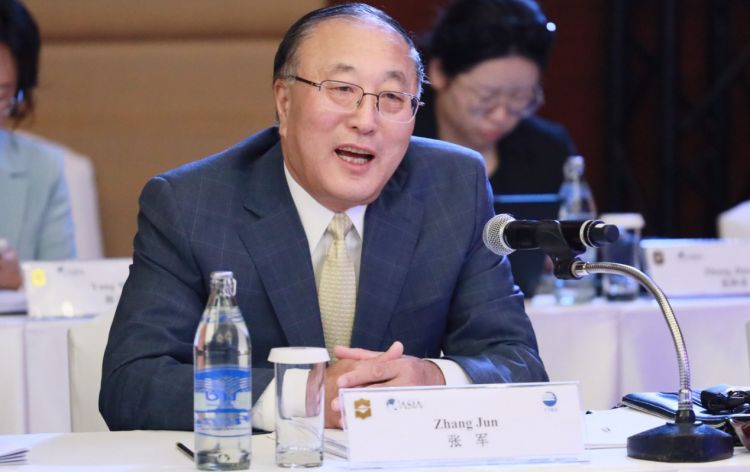
Professor Chi Fulin, President of the China Institute for Reform and Development (CIRD), pointed out in his opening speech that as the world's largest free trade area, RCEP features the ASEAN as main body, development as its orientation, and inclusiveness as its characteristics. RCEP has been officially implemented for more than two years now and has initially demonstrated its important role in promoting regional economic cooperation and enhancing the economic resilience and risk resistance of the region. In the next few years, it is a critical period for the full implementation of the RCEP, and all parties need to make joint efforts. Prof. Chi Fulin put forward six suggestions. firstly, focus on improving the utilization rate of RCEP rules of origin; secondly, promote the China-ASEAN free trade process under the RCEP framework; thirdly, promote the negotiation process of the China-Japan-Korea free trade agreement under the RCEP framework; fourthly, establish an RCEP coordination mechanism; fifthly, promote the institutionalized construction of RCEP expansion; last but not least, give play to the intellectual support role of the RCEP Think Tank Network.
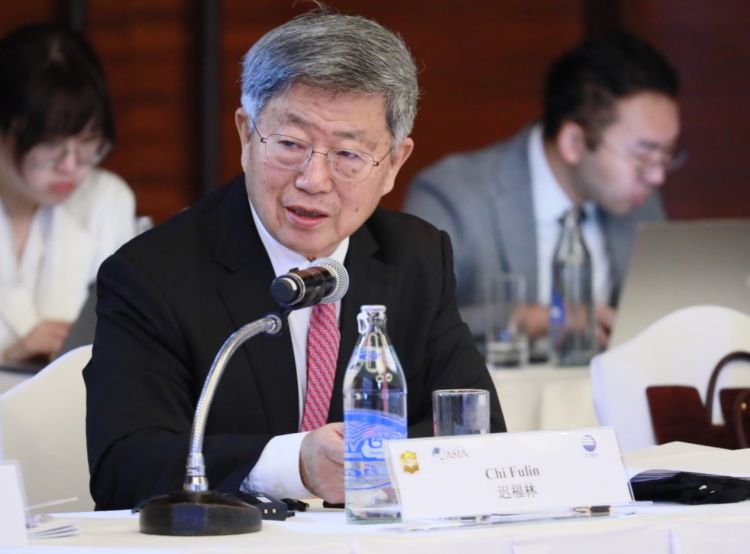
H.E. Liu Zhenmin, China's Special Envoy for Climate Change, pointed out that the official implementation of the RCEP provides a new choice for the Asia-Pacific free trade process; as an agreement primarily consisting of members from developing economies, the RCEP must address numerous challenges brought about by geopolitical changes and climate change in its future development. To be full of confidence in the future of the RCEP, the key is to take proactive actions. Firstly, promote the upgrading of the China-ASEAN free trade area; secondly, the development of China's huge market will provide important opportunities for ASEAN countries; thirdly, accelerate the negotiation of the China-Japan-Korea free trade area. Next, strengthen cooperation with the ASEAN Secretariat, establishing and improving the RCEP implementation mechanism centered on ASEAN. Last but not least, gather the strength of experts and scholars in the region to provide important think tank support for the development of the RCEP.
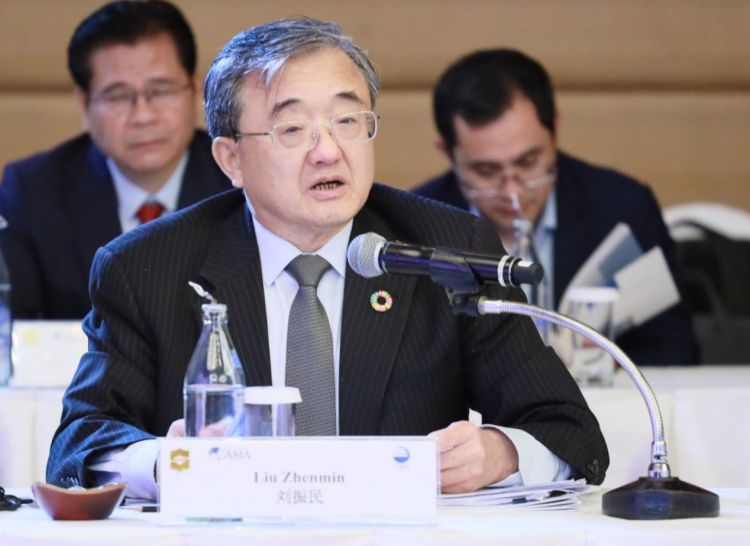
H.E. Tan Sri Ong Tee Keat, President of Belt and Road Initiative Caucus for Asia Pacific (BRICAP) Malaysia, pointed out in his speech that exploring the new future of the Asian economy cannot bypass the RCEP because it is currently the largest free trade arrangement in the world. While the RCEP has made relevant progress, what needs to be deeply considered is whether the original intention of promoting the RCEP has been achieved and what are the challenges the comprehensive implementation of the RCEP faces. In the process of promoting the implementation of the RCEP, it is necessary to overcome skepticisms and increase the awareness and utilization rate of the RCEP among enterprises; it is necessary to give full play to the role of think tanks and further analyze relevant RCEP data.
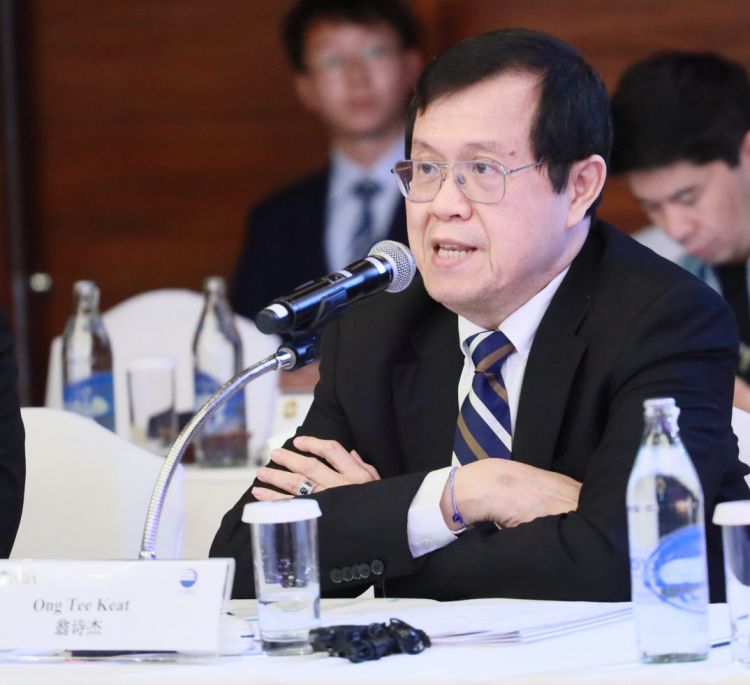
H.E. Keomorakoth Sidlakone, Assistant to Ministers, Ministry of Industry and Commerce, Laos PDR, pointed out that RCEP has brought many benefits to the ASEAN member of Laos, creating new opportunities and improving its economic structure. At the same time, the implementation of RCEP faces many challenges, including varying levels of economic development among member countries, differing determination to reform, and inconsistent coordination of regulatory standards, etc. To this end, it is necessary to improve and construct cross-border transportation and logistics infrastructure, and enhance the efficiency and reliability of goods transportation; secondly, it is necessary to fully evaluate the necessity and urgency of establishing a dedicated coordinating body; thirdly, accelerate the formulation of the RCEP development strategy.
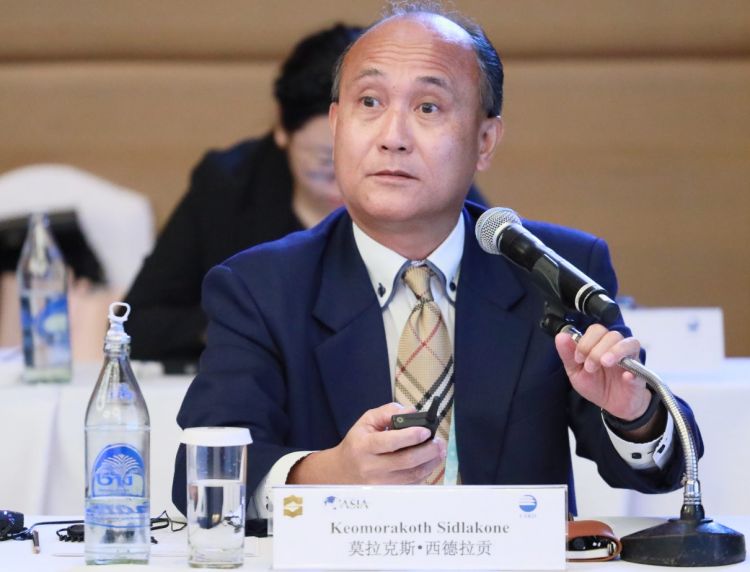
Dr. Yose Damuri, Director of Centre for Strategic and International Studies (CSIS), Indonesia, believes that in order to effectively address the challenge of low utilization rate of rules faced by the implementation of the RCEP, members of ASEAN as the main body of the RCEP need to accelerate the construction of relevant RCEP mechanisms, set clear and realistic timetables, and determine specific tasks and goals; it is necessary to establish trust and cooperation through diplomatic efforts; it is necessary to formulate an RCEP strategy to address new challenges in fields such as the environment and climate, promote open and inclusive regionalism, and expand the coverage of the RCEP; it is necessary to strengthen capacity building, strengthen economic consultations among members, and strengthen interaction with non-members.
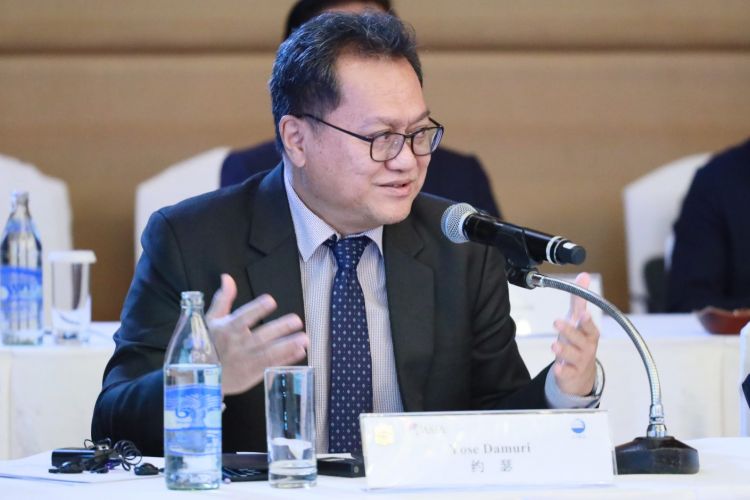
Dr. Rommel Banlaoi, President of the Philippine Institute for International Security Studies, pointed out that the comprehensive implementation of the RCEP is conducive to regional peace and stability. Since RCEP advocates free, open and inclusive trade, its full implementation is also conducive to the peace and stability in the South China Sea and it builds a platform for all parties to establish confidence and mutual trust through economic cooperation and integration. The comprehensive implementation of the RCEP can also promote the implementation of the China-ASEAN Declaration on the Conduct of Parties in the South China Sea, especially cooperation in various fields such as marine environment research, marine environment protection, search and rescue operations, maritime navigation safety, joint fishery management, combating transnational maritime crimes at sea and even joint development of natural gas.
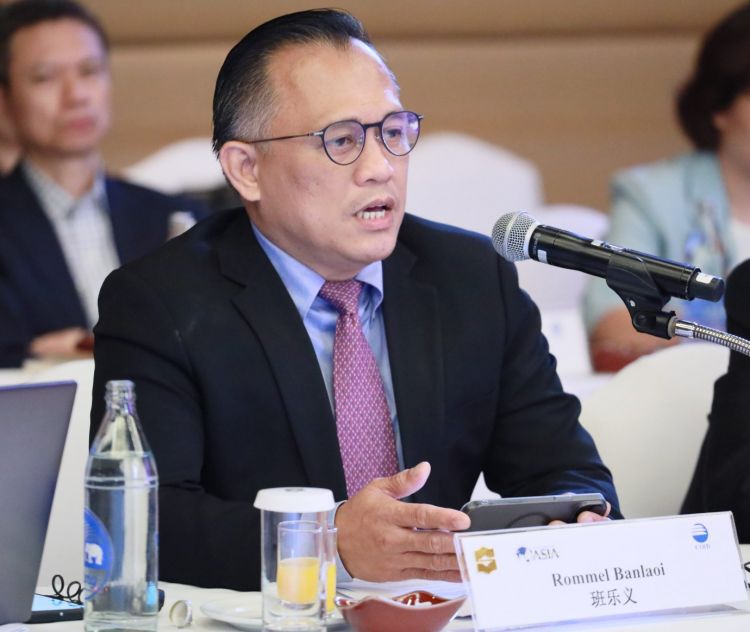
Ms. Jittima Nakamano, Director of the ASEAN Economic Affairs Division of the Department of Trade Negotiations of the Ministry of Commerce of Thailand, pointed out that Thailand has made good progress in implementing the RCEP. But it also faces challenges and tasks such as improving the utilization rate of RCEP rules, building industrial and supply chains, and expanding trade and investment scale. Thailand needs to strengthen the utilisation of rules by the public sector; all stakeholders should strengthen communication and cooperation to promote better implementation of the RCEP; it is necessary to help private enterprises participate in the RCEP through various government projects and help them understand and better use the RCEP rules.
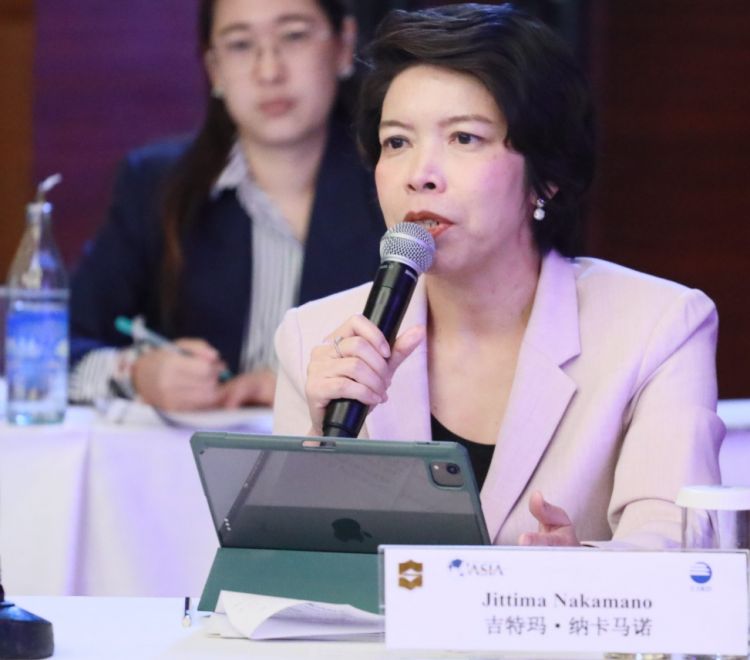
Mr. Sun Wei, Founder and Chairman of CHERAF International Education Group Co., Ltd., pointed out that the global expansion of China's electric vehicles is an irresistible trend, which has brought a large demand for talents. This not only promotes the more benign development of the industry, but also brings a large number of high-income jobs with broad development prospects, thereby promoting high-quality employment and sustainable well-being in the host country. Therefore, it is recommended that all members of the RCEP introduce relevant preferential policies for talent cultivation as soon as possible.
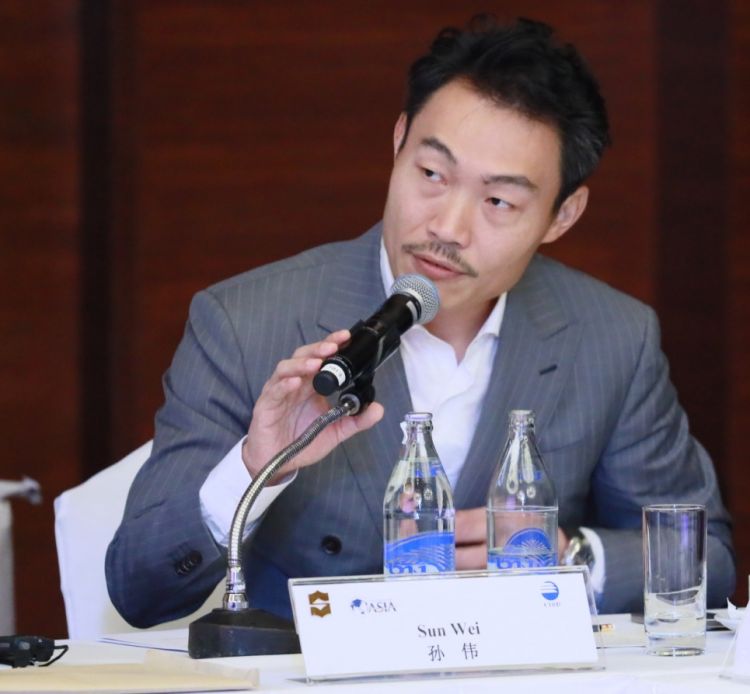
Dr. Li Chun, Director of CIRD-GRANDALL Center of FTP Law Studies, pointed out that, first, the RCEP is a document for investment and trade, as well as legal rules and laws. It has been jointly signed by various countries and approved by the legislative organs and governments of each sovereign country; second, it is necessary to start establishing relevant paths for resolving RCEP disputes, including setting up arbitration centers or special courts; third, the RCEP should pay more attention to intellectual property protection; fourth, establish an RCEP legal verification system as soon as possible; fifth, pay attention to the utilization of rules of origin; sixth, form an RCEP legal coordination group or legal coordination committee.
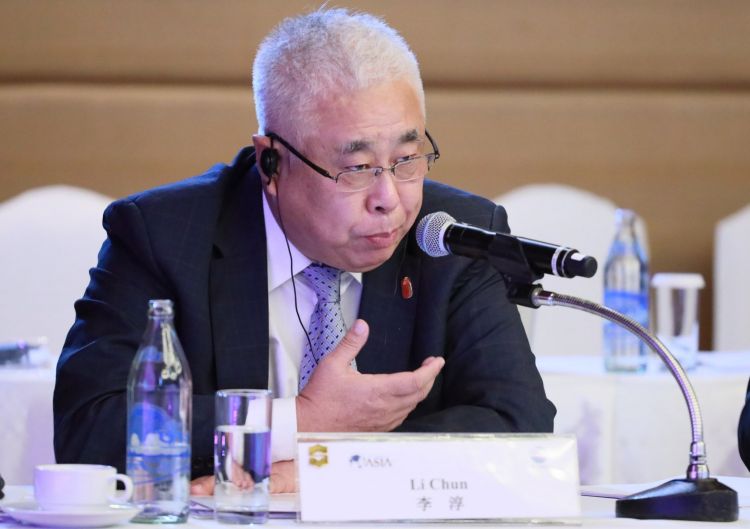
Dr. Kuang Xianming, Vice President of the China Institute for Reform and Development, pointed out that the RCEP leads the new process of Asian economic integration through four channels. First, it leads the new process of Asian economic integration through trade channels; second, it leads the new process of Asian economic integration through investment channels; third, it leads the new process of Asian economic integration through market entity channels; fourth, it leads the new process of economic integration through releasing economic growth potential . The key to making good use of these four approaches is to accelerate the implementation of the RCEP. To promote the accelerated implementation of relevant RCEP rules, establish a strong RCEP coordinating mechanism, promote the construction of RCEP expansion mechanism, and increase RCEP capacity training efforts.
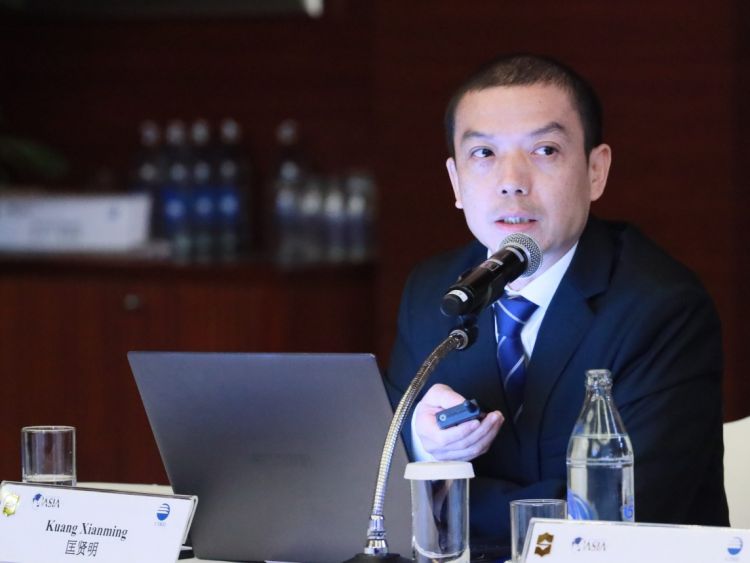
The meeting was hosted by Ms. Yang Rui, executive president of the China Institute for Reform and Development and president of the RCEP Research Institute.
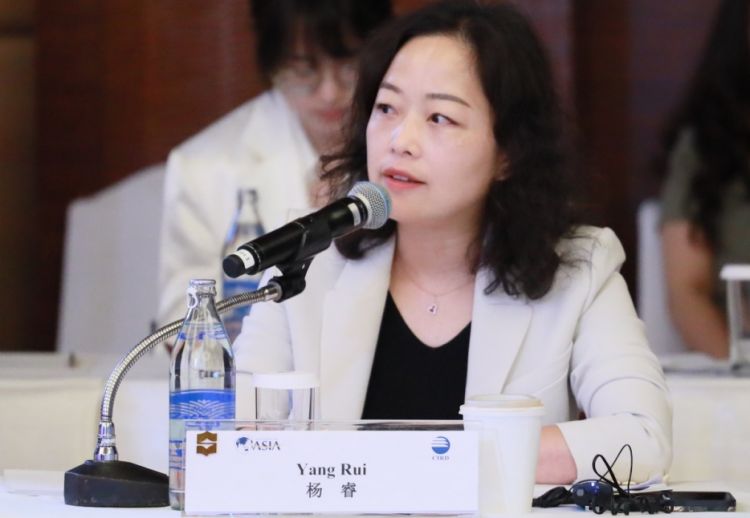
Mr. Guo Da, Vice President of Hainan Institute for Free Trade Port Studies (HIFTPS), Mr. Wang Yuehong, Research Assistant of the RCEP Research Institute of CIRD, Ms. Chi Xue, Project Assistant of the International Cooperation and Exchange Center of CIRD, and Ms. Liang Hui, Secretary-General of CIRD-GRANDALL Center of FTP Law Studies, etc. attended the meeting.
 中改院
中改院
 Scan official wechat
Scan official wechat Scan official wechat
Scan official wechat